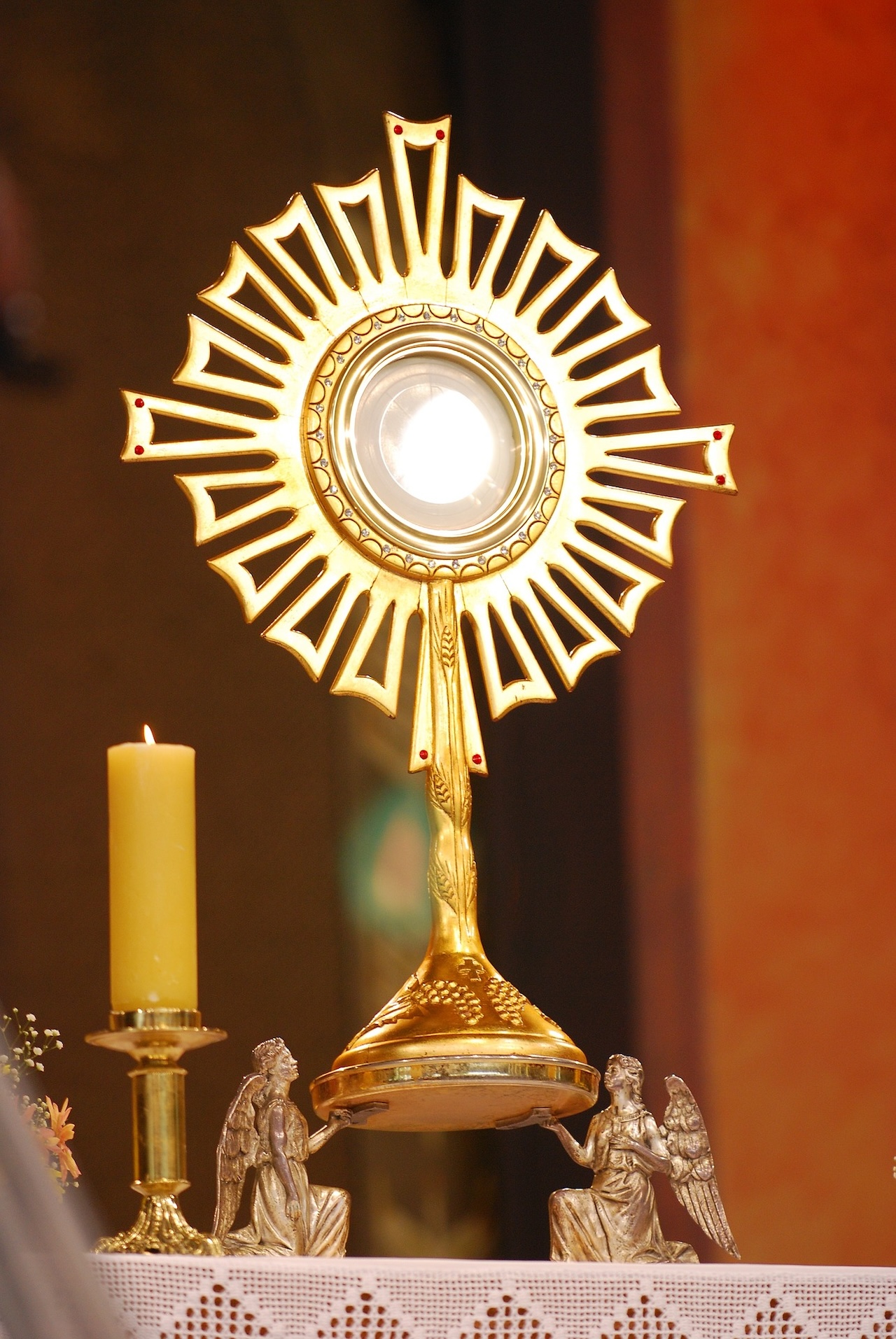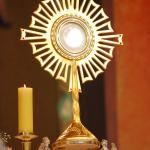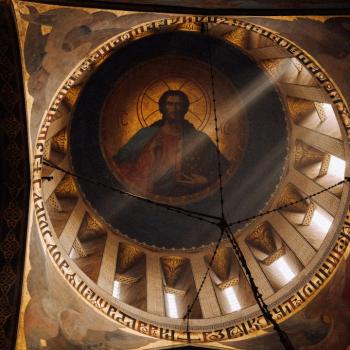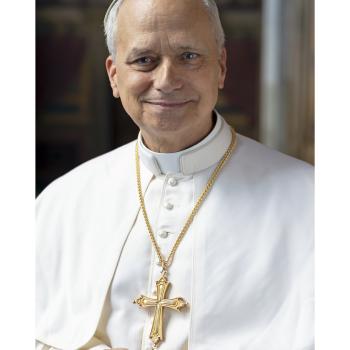To understand the sacrament of the Eucharist, it is important for us to understand symbols. What are some symbols from our everyday experience? Golden arches mean McDonald’s. A silhouette of a man and woman mean that the restroom is nearby. A printed “55” on a highway sign means that we should not drive faster than 55 miles per hour. These are all symbols that signify reality. Even though we may speak of the symbolic power of the Eucharist, we must focus on its transformative power, recognizing that this sacrament is not merely a symbol. As the source and summit of ecclesial life, the Eucharist’s transformative power brings us to Jesus by pointing to reality and by inviting us to participate in the future heavenly liturgy.
Reality Pointing to Reality
We are not very used to liturgy in our modern world. There are various rituals that we undertake, but few liturgies. Because of this, often the language of the Church and of faith seems distant from our everyday experiences. This makes it harder to appreciate the richness of what happens on the altar. The liturgy of the Eucharist is particularly beautiful because it introduces us into a reality that would be completely inaccessible otherwise. Whereas ancient mystery religions represented some original myth through their liturgies, our liturgy presents Jesus himself in his sacrifice and death.
The Eucharist is an “efficacious sign and sublime cause of communion” (Catechism of the Catholic Church, 1325). What does it mean to be an efficacious sign? A Patriots’ logo makes us think of the team, but it is not the team. The Eucharist is Jesus and simultaneously points us to Jesus. It may remind us of his historical existence and his great spiritual worth, while it is really him. The Eucharistic species deceive our senses because we cannot perceive empirically the reality of his presence. It is also a sublime cause of communion because when we all partake in the One Body of Christ, we become one with each other as well. There is no greater way of establishing communion than by sharing in the Body of Christ. Of course, for this to be effective, we must also be in the right disposition to receive Jesus in Communion. Meditating on the Eucharist invites us to think about the past, the present, and the future.

Past, Present, and Future
We must look back to the past, because Jesus instituted this sacrament at the Last Supper and our participation in the Eucharistic Celebration turns our minds back to his sacrifice on the Cross. We look at the present because we receive Jesus in Communion here and now. Our gaze looks towards the future, towards the eschatological reality (“eschatology” is the theological study of the ultimate realities: death, judgment, heaven, and hell), because it reminds us that we are called to be in the eternal bliss of Heaven. The Eucharist gives us a foretaste of the heavenly liturgy we will one day celebrate eternally (cf. Catechism of the Catholic Church, 1326).
The Eucharist is more than a symbol: this is what allows it to change our way of thinking. For all of us, there may be aspects of Catholic doctrine that appear absurd or silly. However, when we enter a relationship with Christ, study the truths of the faith, and do our part to increase our understanding, spending time in his presence will prove efficacious in reshaping our minds and bringing us to the fullness of the truth. “Our way of thinking is attuned to the Eucharist, and the Eucharist in turn confirms our way of thinking” (Catechism of the Catholic Church, 1327).
If there is something weighing on your heart or serving as an obstacle that does not allow you to reach Jesus, spend some time in front of the Blessed Sacrament. Go to Jesus, run to Jesus. Every minute that you spend in Eucharistic adoration is a source of grace, healing and peace. Often, I believe that to truly understand the Eucharist, we should recur to the wisdom of the saints.
If we paused for a moment to consider attentively what takes place in this Sacrament, I am sure that the thought of Christ’s love for us would transform the coldness of our hearts into a fire of love and gratitude (St. Angela of Foligno).
Subscribe to the newsletter to never miss an article.
Read about the Mass as the authentic sacrifice to the Father or the Mass as a memorial.













